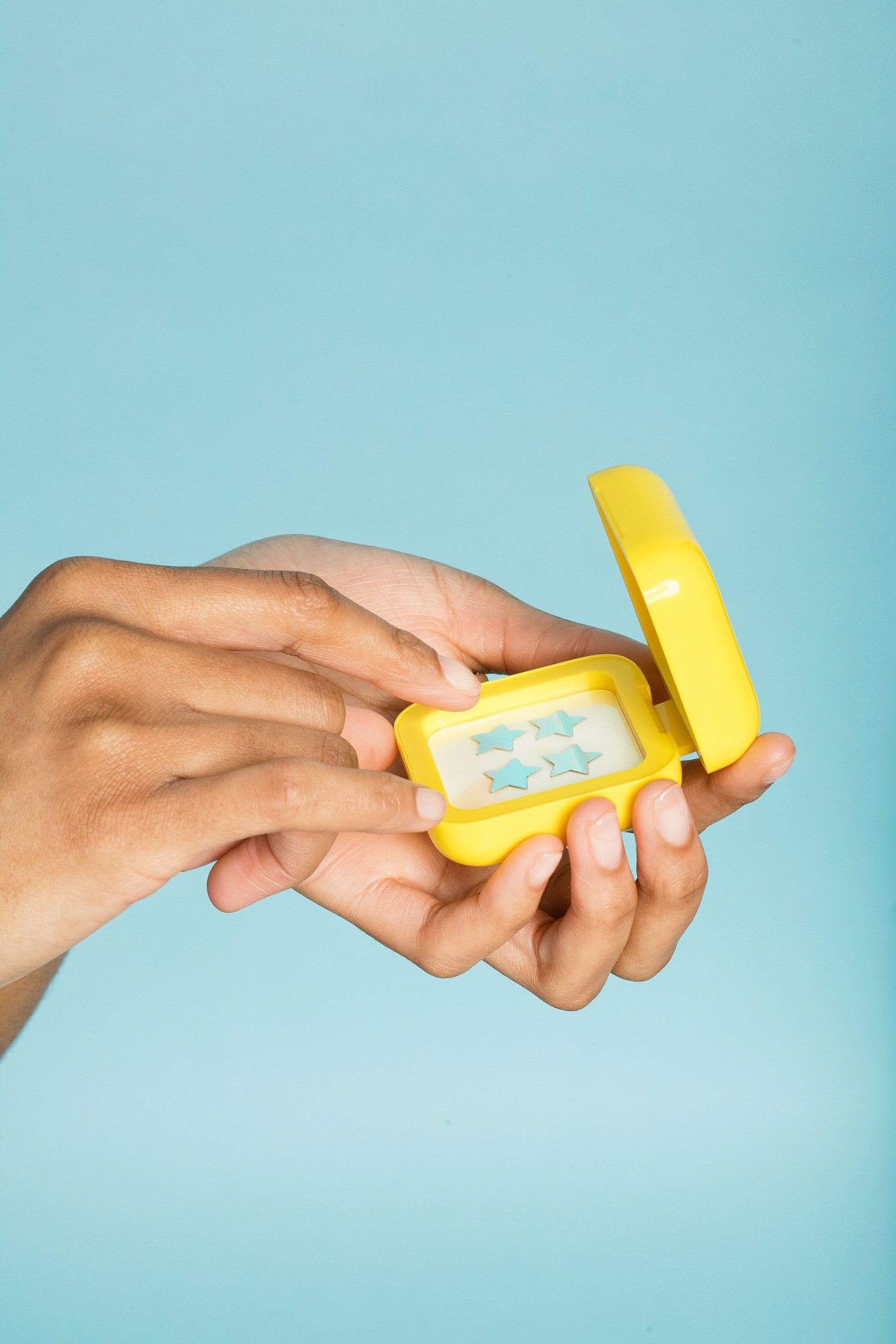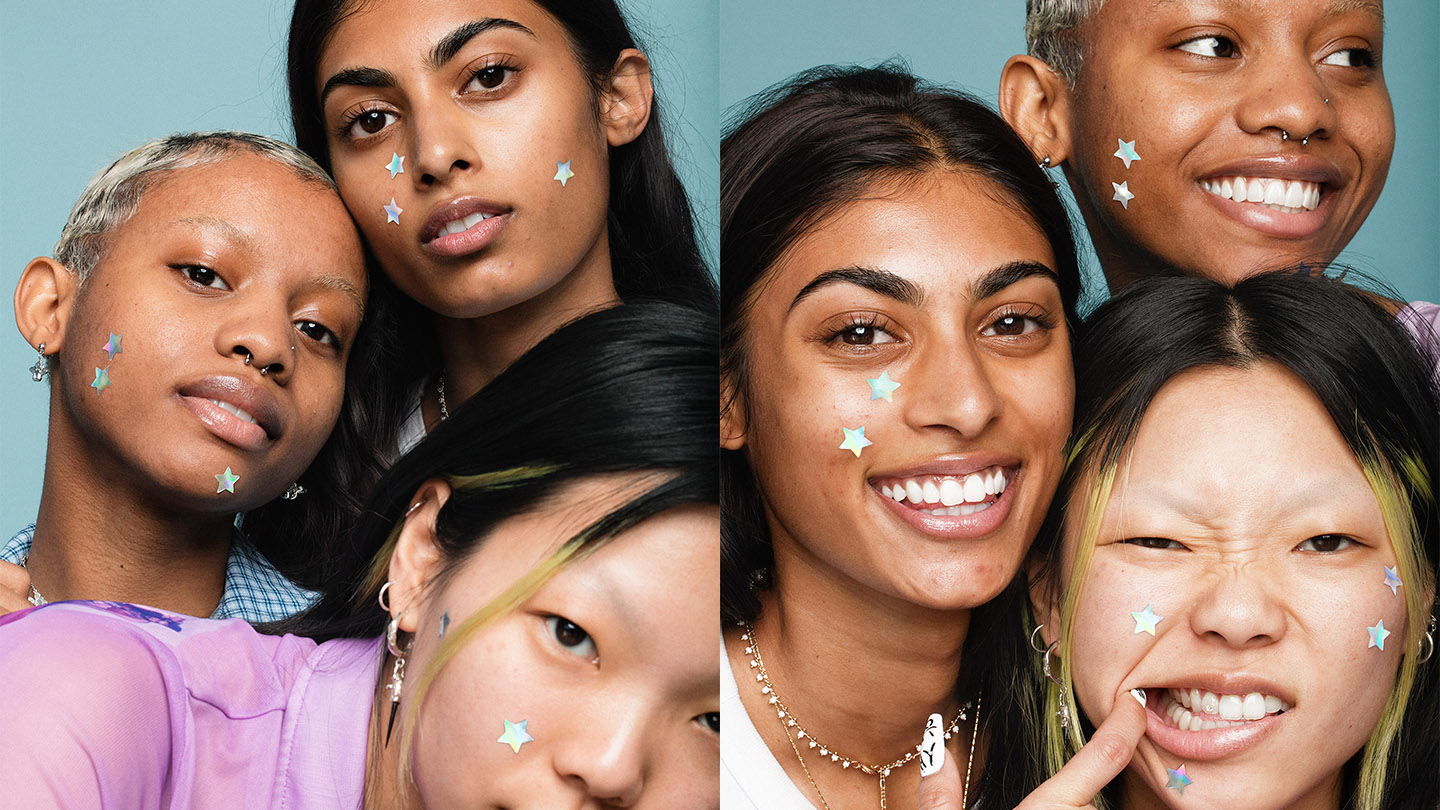When skin problems or breakouts occur, usually the last thing anyone wants is to draw attention to it. Beauty standards have conditioned us to believe that all imperfections are ugly and should be hidden away. Now more than ever, we’re expected to cultivate a continuous FaceTuned Insta grid aesthetic — all acai bowls, smiles and clear skin.
Undoubtedly that amount of pressure to be perfect and to adhere to unrealistic standards has a detrimental effect on our mental health. Just a couple months ago, Instagram announced a new feature that would filter out photoshopped images from your feed, in a token effort to curb the spread of fake news, as well as protect its users from the onslaught of seemingly ‘perfect’ images.
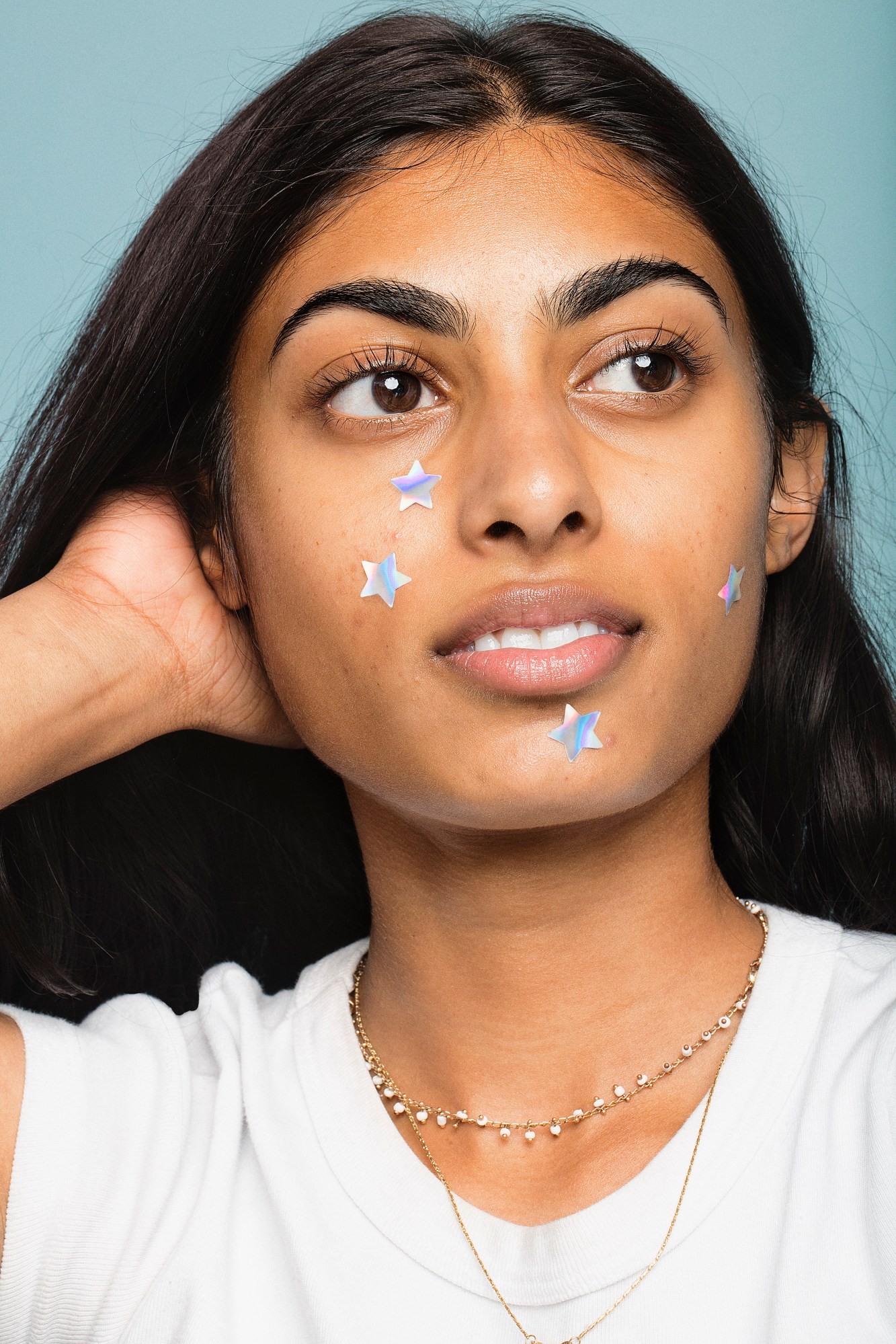
But just as tech has responded to these pressures, so too has the beauty industry. Starface, appropriately, began on Instagram as well. Launching in the UK this week as a bonafide skincare brand, it all began back in 2018 when founder Julie Schott decided that rather than try to hide her acne under a mountain of foundation, she’d put a star on it — like the kind your teacher gave you in primary school for being good — instead.
“I had acne throughout my twenties,” Julie, an ex-beauty editor, says. “The more I messed with my pimples, the more sensitive and inflamed my skin became, as if begging to be left alone and treated more gently. Once I stopped caking my spots in foundation and concealer during the day, and drying treatments at night, I began to feel better, which is all that matters ultimately. That’s where Starface comes from, wanting to bring optimism to a difficult time.” Championing self-acceptance, Julie began sharing these star spot selfies with her Instagram followers, who in turn began posting their own, and so a movement was born.
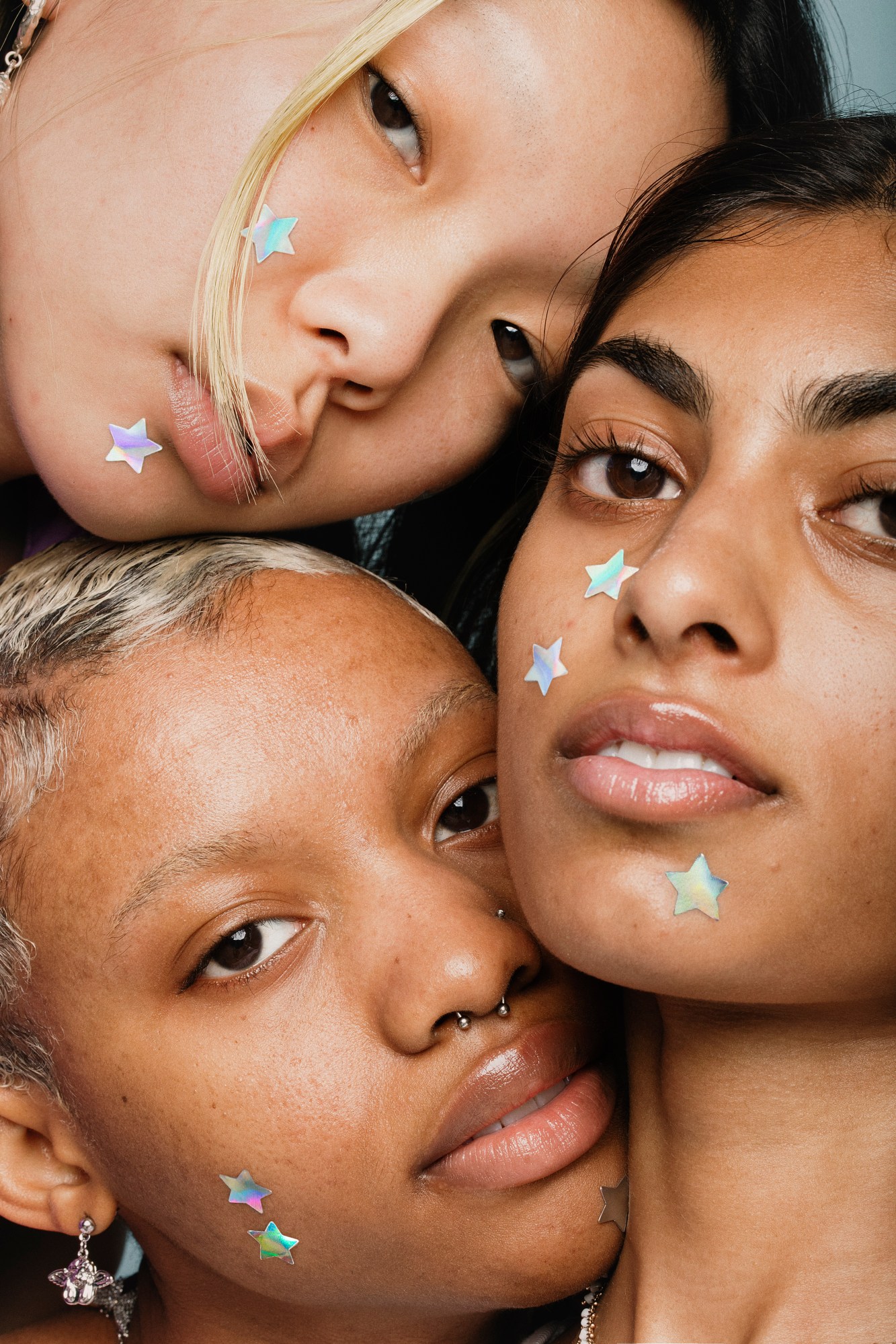
Rather than using adhesive star stickers, Julie got proactive and began releasing ‘Hydro-Stars’. The vegan and cruelty-free stickers aim to speed up the recovery process by drawing out pimples forming under the skin, blocking out environmental irritants and stopping you from picking and aggravating the area. They come in a little AirPod-esque package in neon yellow. Far from subtle, but that’s the point. “I think people are over ‘corrective’ products and that identical Instagram face,” says Julie. “The skincare products I grew up with always used ‘pimple’ and ‘blemishes’ and ‘imperfection’ interchangeably, which reinforces the idea that spots are bad and everything else is good. Treating breakouts with kindness has always been our goal.”
Up to 95% of 11-30 year olds in the UK are affected by acne to some degree, and research has found a link between skin problems and the development of mental health issues like depression, anxiety and low self-image. “We all know what it feels like to scroll through social media, compare ourselves to other people, and end up feeling like shit,” says Julie. “Publications like i-D have always challenged traditional beauty standards and given visibility to people who, a decade ago, were rarely seen in mainstream media.”
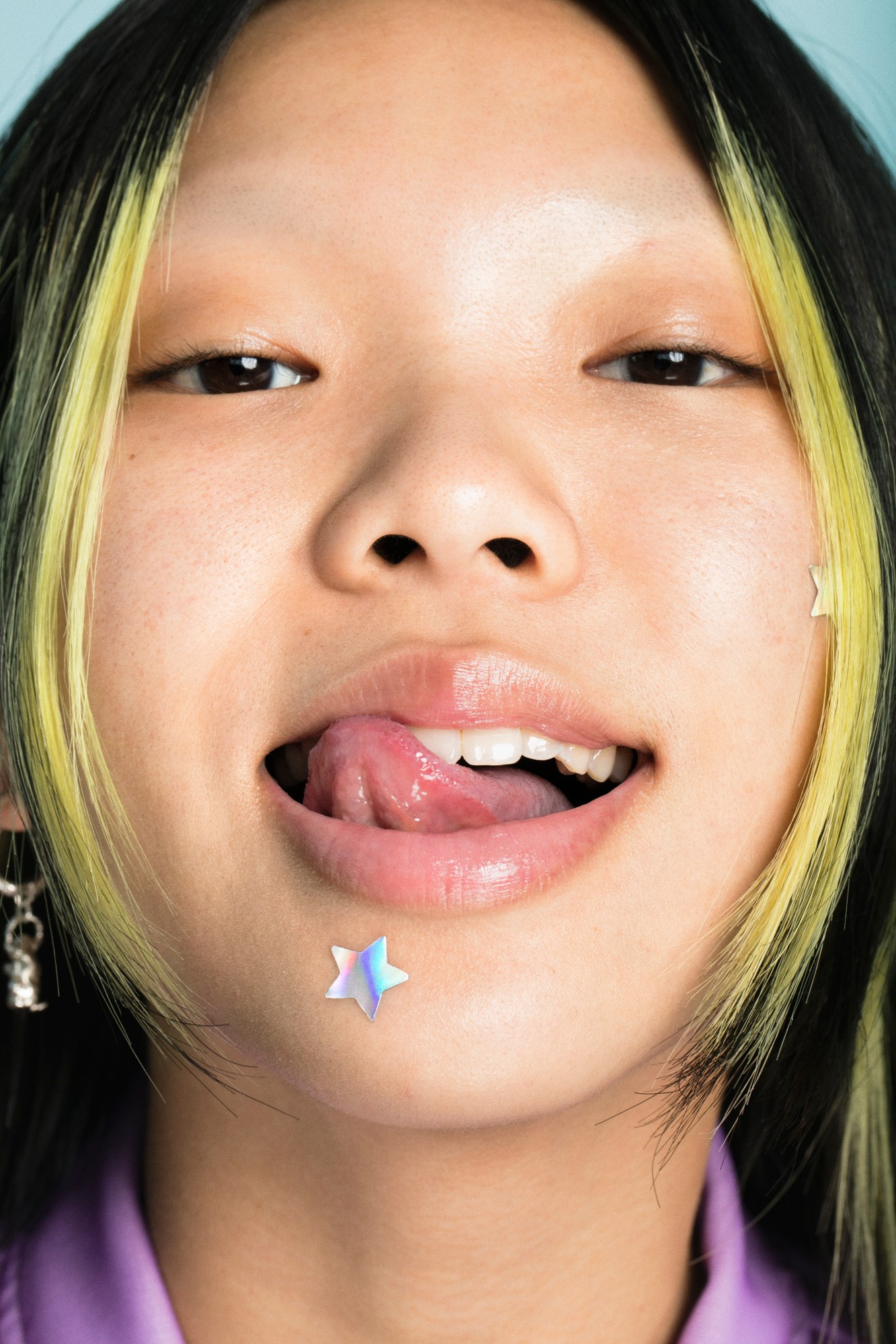
There’s a long way to go but, as Julie notes, small changes like Starface can go a long way. “On IG and Tiktok, it’s a mixed bag, which is why we try to do our part with Starface in not putting forward more smooth boring sameness,” she finishes with. “Beauty, to me, is simply the feeling of comfort and being at ease in your own skin, whatever that might look like.”
